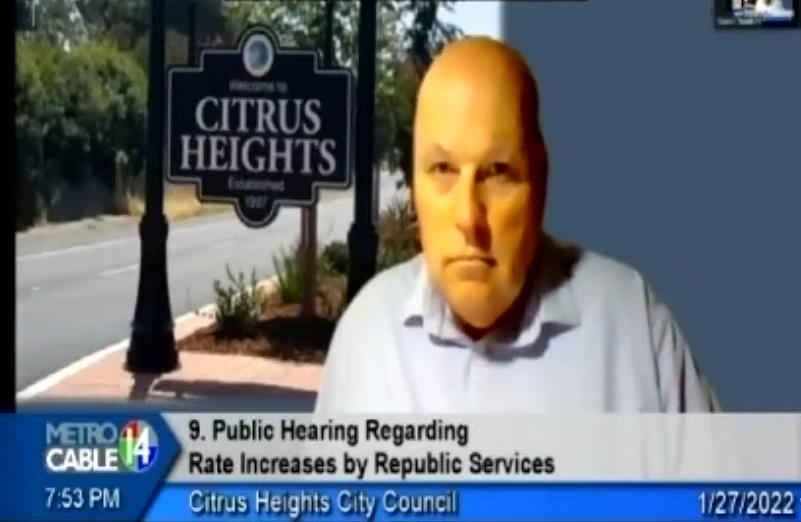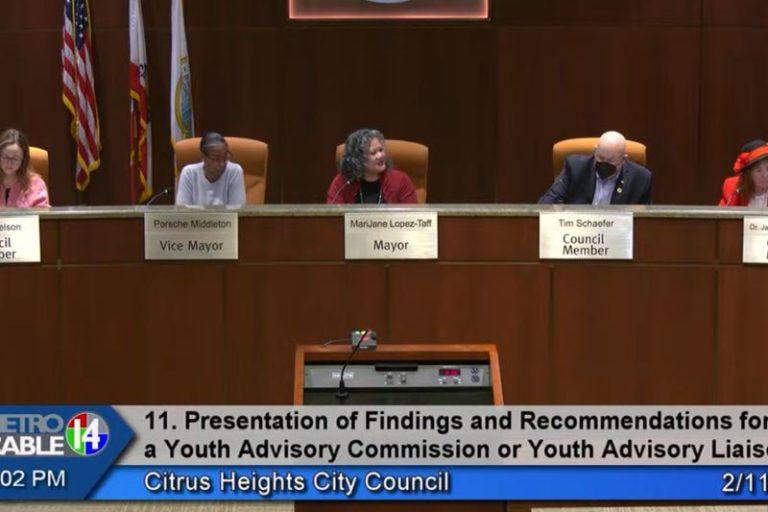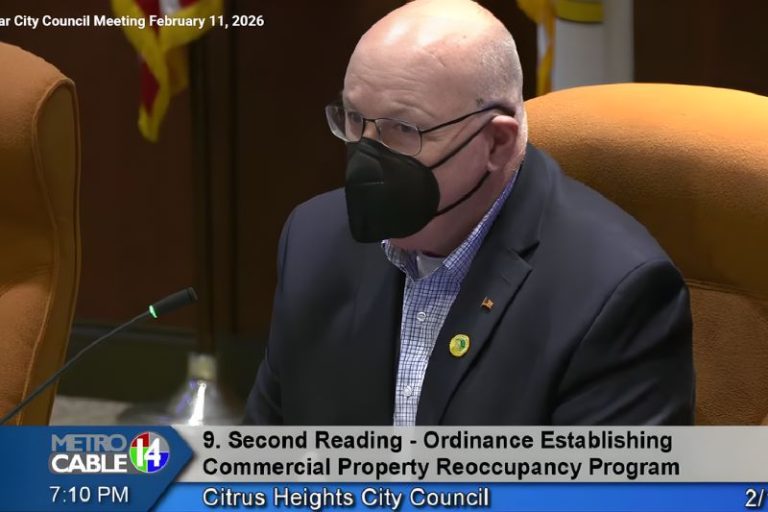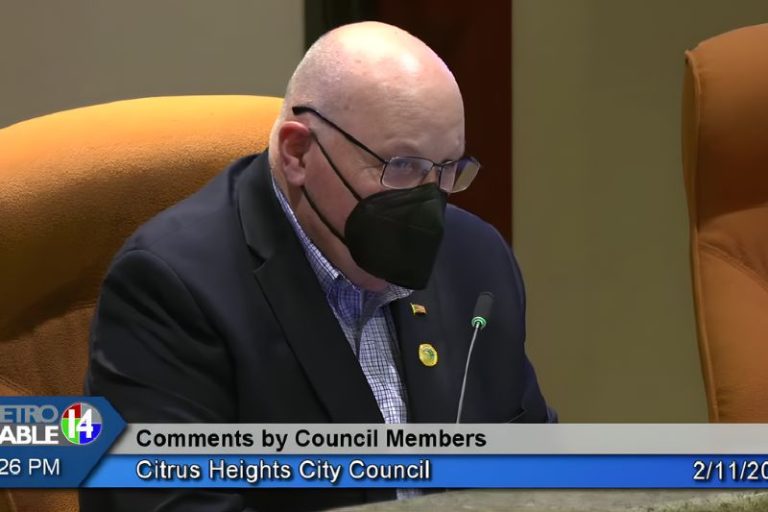
Sentinel staff report–
Residents can expect to see, on average, a 26% increase in their bill for waste collection in Citrus Heights, after the City Council held a public hearing Thursday night and narrowly voted to affirm a fee increase to cover the cost of a state-mandated organics recycling program.
According to City Clerk Amy Van, a total of just over 100 letters of protest were received from residents, falling far short of the required majority protest specified by law to halt the fee increase. Public testimony was also heard on both sides, with three residents opposing the increase and one in favor.
“We have the highest cost of living, the highest gas taxes,” said one resident, John Cain. “I’m drawing a line in the sand. I’m going to become a political activist.”
Although acknowledging the city’s position in being forced to comply with state law or face daily fines, he urged the council to consider ways to lower the cost of the increase for residents and also said many people weren’t aware of the increase in fees.
Another resident called it “an outrage on so many levels,” and another wrote a letter to the council calling it “a HUGE increase for those of us that are seniors, veterans, immigrants, and living on ‘fixed incomes.'”
The organics recycling law, SB 1383, also has its supporters, with speaker Glenda Green telling the council the fee increase seemed reasonable due to the increase in weekly pickup of green waste cans, while adding that an assistance program to help low-income residents would be a good idea.
“I am in favor of composting, and I’m actually really excited that we will have municipal composting,” she said, calling composting “the way of the future.”
Despite the 3-2 vote in favor of approving the fee increase, council members were united in their opposition to the organics waste recycling being an “unfunded mandate” from the state. However, under threat of fines for non-compliance, the majority agreed to vote for the increase.
“Nobody is happy about this,” said Councilwoman Jeannie Bruins. “We really are between a rock and a hard spot: if we vote this down, we still have to do it, we just get fined up to $10,000 a day if we refuse to do it.”
“My over-arching message is that we need to change things at the state level,” said Bruins. “If we are really serious about being activists, as John said earlier, that’s where it’s gotta start.”
Vice Mayor Tim Schaefer also had critical remarks about the program being mandated by the state, but called resident response “disappointing.”
“I did, myself, reach out to folks and asked them to send their protest letter is, and 108 people… that’s just pretty disappointing,” said Schaefer. “If people aren’t going to make their voices heard, I don’t know what else we can do.”
Councilman Bret Daniels said he wasn’t surprised by the low number of protest letters, noting that a city-wide mailer that was sent out could have been more easy to fill out a protest vote, with postage pre-paid.
“Not to be too dramatic about it, but I almost feel like it’s similar to the day when they dumped the tea into the Boston harbor and said ‘no’ to a very small tax,” said Daniels. “I feel like: why don’t we take our garbage cans down to the capitol and dump em out and tell them ‘No, we’re not doing it.'”
“I know its gonna pass, but again guys at some point we’re also elected to be the voice of the community and I can guarantee you the community doesn’t support this,” said Daniels, just prior to casting his vote. “At some point are we gonna push back, or are we gonna continue to let ourselves be pushed around?”
At the conclusion of the meeting, council members agreed to support a proposal by Councilman Steve Miller to draft a “strongly worded resolution objecting to SB 1383 and forwarding that on to the Governor and the California legislature.”
With the council’s vote on Thursday, fees are slated to jump by about $6 beginning in July 2022, rising from $23.61 for a typical 64-gallon garbage cart to $29.80, according to a staff report. Prices will then rise by up to 3.5% per year over the next five years, based on the Consumer Price Index.
A city spokeswoman said an average cost increase for residents will be about $7.10 per month, or $14.20 per every two-month billing cycle.
Under the new changes, beginning in July, green waste carts will be collected weekly instead of bi-weekly, and residents will be required to place food scraps and food-soiled paper in the green bin.
Want to share your thoughts on this topic? The Sentinel welcomes letter to the editors or opinion columns for publication. To submit one online, click here.










